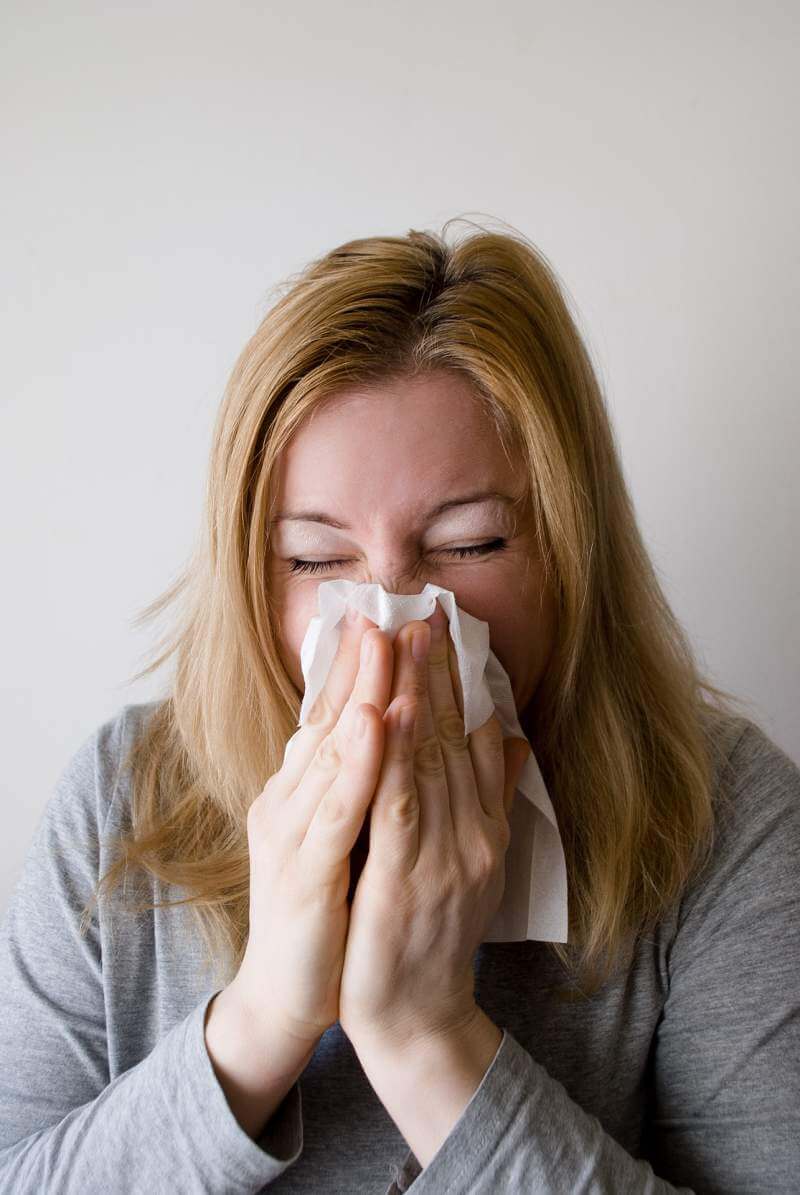Don’t smoke or drink too much. There, that’s the hard part an Ear Nose And Throat (ENT) doctor is going to tell you. Smoking dries out mucous membranes and introduces carcinogens regularly into the body, among other negative things. Smoking additionally weakens your immune system, which in turn makes you more susceptible to colds.
Alcohol weakens your immune system too. If you regularly smoke and drink, you’re continuously impacting your body’s ability to defend itself against varying illnesses. Here’s something you may not realize: on a typical day, micro-organisms in their thousands and hundreds of thousands are routinely rebuffed by your body’s natural defenses.
Every day, you probably come into contact with an illness that would knock you out of commission for a few weeks or months. The reason you don’t get sick is your immune system is properly supported such that it can handle such pathogens. When your immune system is impacted, then you get sick. Even emotional engagement or its lack can lead to such impact.
The Negative Impact Of Some Technology
 Believe it or not, prolonged exposure to technology can cause ENT issues. Generally, you need to limit tech usage yourself, and among your children if you have any. If not, here’s a common scenario.
Believe it or not, prolonged exposure to technology can cause ENT issues. Generally, you need to limit tech usage yourself, and among your children if you have any. If not, here’s a common scenario.
Technology use leads to sedentary activity. Sedentary activity reduces your body’s immune strength, because you’re out of balance in terms of weight and muscle. I.E., if you’re less active, and more apt to spend time in front of a television or computer screen, this can make you get sick easier.
When you get sick easier, you’re more likely to experience sinus congestion and even headaches. This can lead to sinus infections which impact the ears, nose, and throat; and may require sinus infection treatment in CT.
At the very least, you may need to get examined to determine the proper approach going forward. Not using technology in excess will diminish how sedentary you are, helping your immune system remain strong.
Dealing With Genetic And Environmental Issues
 A bad enough ear infection can permanently damage your ability to hear. A mother who ingests the wrong kind of foods or intoxicating substances while pregnant could have a child with damage like hearing loss. These conditions are difficult, but treatment options exist.
A bad enough ear infection can permanently damage your ability to hear. A mother who ingests the wrong kind of foods or intoxicating substances while pregnant could have a child with damage like hearing loss. These conditions are difficult, but treatment options exist.
While technology may have some level of negative impact in terms of over use of that which initiates sedentary behavior, there are good breakthroughs. For example, hearing aids in New Hampshire can help fix hearing loss which results either from defects that develop during birth, or which come as a result of a severe illness. To understand how positively impacting technology in this region is, it makes sense to divert slightly onto that which drives current breakthroughs.
A Technological Digression
 One reason so many unexpected positive and negative collateral effects of tech are experienced today has to do with how rapidly it’s produced. Gordon Moore discovered, in the mid-sixties, that the rate hardware doubled on itself was relatively constant, making it so computational ability expands on an exponential curve.
One reason so many unexpected positive and negative collateral effects of tech are experienced today has to do with how rapidly it’s produced. Gordon Moore discovered, in the mid-sixties, that the rate hardware doubled on itself was relatively constant, making it so computational ability expands on an exponential curve.
Presently, “Moore’s Law” reckons technological development doubles on itself about every eighteen months. This means eighteen years ago was multiple exponential levels of magnitude behind where technology is at today. If you stop and think about it, this makes sense; issues with children and screen time weren’t so dire then as they are now.
Likewise, breakthroughs pertaining to assistive technology weren’t so integral, either. Quantum computing was developed many years ago, and even more recently coding was put inside DNA and a genetic sequencer used to read it. A few images, text, and sound files were successfully recovered.
On top of that, nanotechnology marches ever onward toward mainstream viability, and all these things combine to make assistive technology solutions more effective than perhaps they’ve ever been. This effectiveness doubles on itself in the highest echelons of technological advancement every eighteen months, and trickles down from there.
Allergies And Immune Systems
 In terms of ENT medicine, there are notable advantages in treatment and the identification of varying causes for certain illnesses or allergies. Old wives tales have been torn down, while previously under-valued solutions have been vetted. An example might be the aforementioned hearing aid solutions, or perhaps ingestion of locally-produced honey as a means of diminishing the negative impact of seasonal allergy—this has now been confirmed.
In terms of ENT medicine, there are notable advantages in treatment and the identification of varying causes for certain illnesses or allergies. Old wives tales have been torn down, while previously under-valued solutions have been vetted. An example might be the aforementioned hearing aid solutions, or perhaps ingestion of locally-produced honey as a means of diminishing the negative impact of seasonal allergy—this has now been confirmed.
The immune system functions in a way like your musculature does. Have you ever heard of muscle memory? Well, when you exercise, you “train” your muscles. If you can type without looking, part of that is because of muscle memory. The same is true with dancing, or playing an instrument. Your immune system functions similarly.
If you encounter an illness, your immune system will “remember” as much, and be less vulnerable when the same illness is encountered later on. Such is the core precept behind the inoculation theory which has lead to modern vaccination. Today, vaccinations introduce an inert—or sometimes only weakened—version of some sickness into the body. If you take a vaccine when you’re healthy, you’ll get sick; but you’ll be enabled to encounter that same illness again later on, when perhaps you’re not in so good health, and otherwise wouldn’t be able to handle it.
Well, now that you understand that, you understand the basic mechanism behind honey being used to help treat seasonal allergies. Basically, bees collect pollen from flowers and other plants throughout your region, and trace amounts of that pollen gets deposited in the honey they produce. Accordingly, if you eat a spoonful of honey daily starting from the end of your latest seasonal allergy bout, by next year, it’s possible you won’t experience any symptoms. Of course, it depends on the allergen. If you’re allergic to something bees don’t touch, or there’s low pollen content in the honey locally produced, this method may not work.
Healthy Sinuses
 Today, ENT health is at an all-time high, and it continues to get better. If you don’t have an ENT doctor that you trust, it would make sense to find one. There are ways to prevent sickness from impacting your sinuses so much, and things you can do when you are sick to alleviate the pain. The right ENT can help you identify all these tactics.
Today, ENT health is at an all-time high, and it continues to get better. If you don’t have an ENT doctor that you trust, it would make sense to find one. There are ways to prevent sickness from impacting your sinuses so much, and things you can do when you are sick to alleviate the pain. The right ENT can help you identify all these tactics.

1 thought on “Best Tips For Ear, Nose, And Throat Health”
Comments are closed.